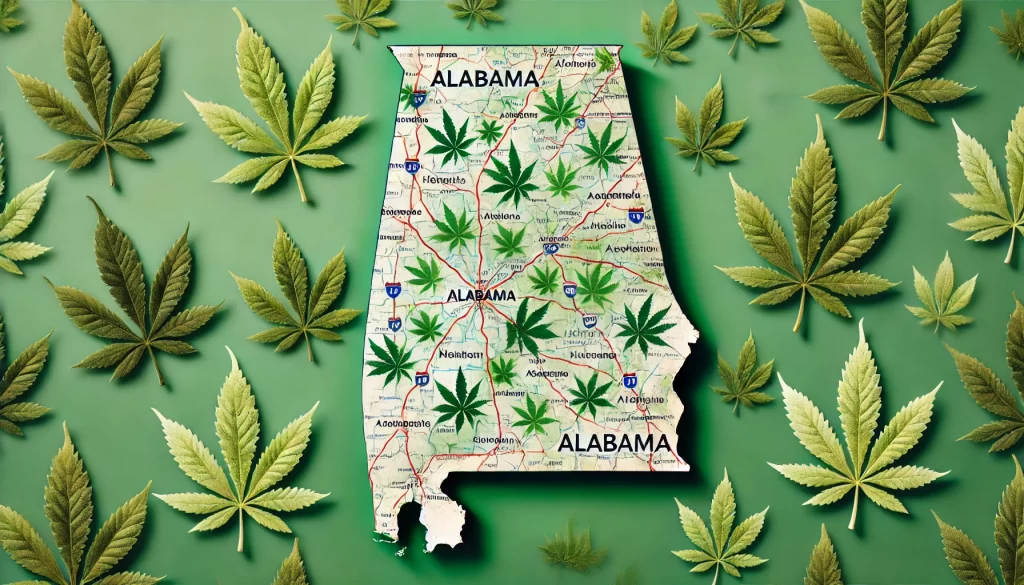
So, what is taking so long for Alabama to start the Medical Marijuana Program?
1. Complex Regulatory Framework
One of the primary reasons for the delay is the complexity involved in creating a comprehensive regulatory framework. Setting up a medical marijuana program is not a simple task. It requires the development of detailed regulations covering everything from cultivation and processing to distribution and patient access. Each of these aspects must comply with both state and federal laws, which can be a time-consuming process.
2. Licensing and Application Processes
The process of issuing licenses to growers, processors, dispensaries, and other stakeholders is another significant hurdle. The state must ensure that applicants meet stringent criteria to operate within the medical cannabis industry. This includes background checks, financial disclosures, security measures, and adherence to regulatory standards. Ensuring a fair and transparent application process takes time, and any missteps can lead to legal challenges and further delays.
3. Public Health and Safety Concerns
Public health and safety are paramount considerations in the implementation of any medical marijuana program. Alabama’s lawmakers and regulatory bodies are focused on creating a system that minimizes the potential for abuse and ensures that cannabis products are safe for medical use. This involves setting standards for product testing, labeling, and packaging, which requires collaboration with medical experts and industry professionals.
4. Education and Training
Educating healthcare providers, law enforcement, and the general public about the medical marijuana program is crucial for its success. Healthcare providers need to understand the therapeutic benefits and potential risks of medical cannabis to make informed recommendations. Law enforcement must be trained on the new regulations to effectively distinguish between legal medical use and illegal activities. Public education campaigns are also necessary to dispel myths and reduce stigma surrounding medical cannabis use.
5. Federal Legal Status
Although Alabama has passed its own medical marijuana law, cannabis remains a Schedule I controlled substance under federal law. This classification poses significant challenges for states trying to implement medical marijuana programs. Banks are often reluctant to work with cannabis businesses due to federal regulations, complicating financial transactions and investments. Additionally, there is ongoing uncertainty about how federal enforcement policies may impact state programs.
6. Alabama’s Political and Social Dynamics
Alabama’s political landscape is another factor influencing the pace of implementation. The state has a historically conservative stance on drug policy, and there are still influential groups and individuals who oppose the legalization of medical marijuana. Balancing these opposing viewpoints while moving forward with the program requires careful negotiation and consensus-building among lawmakers and stakeholders.
7. Infrastructure and Logistics
Building the necessary infrastructure for a medical marijuana program from scratch is a daunting task. This includes establishing cultivation facilities, processing plants, distribution networks, and dispensaries. Each of these components requires significant investment, planning, and time to become fully operational. Ensuring that these facilities meet regulatory standards adds another layer of complexity to the process.
Moving Forward: A Path to Implementation
So, what is taking so long for Alabama to start the Medical Marijuana Program? Despite the challenges, there is progress being made towards the implementation of Alabama’s medical marijuana program. The Alabama Medical Cannabis Commission (AMCC) is actively working on developing the necessary regulations and procedures. Patients and advocates continue to push for timely implementation, highlighting the urgent need for alternative treatments for chronic pain, epilepsy, and other debilitating conditions.
While the road to a fully operational medical marijuana program in Alabama is longer than many anticipated, the foundational work being done now will help ensure a safe, effective, and sustainable system. Patience and continued advocacy will be key as the state navigates the complex landscape of medical cannabis regulation.
In the meantime, staying informed and engaged with the process is crucial. By understanding the reasons behind the delays and supporting efforts to address them, we can collectively contribute to the successful implementation of Alabama’s medical marijuana program, bringing much-needed relief to patients across the state.
Impact on Patients
The delays in the AMCC’s work have had profound implications for patients in Alabama. Thousands of individuals suffering from conditions like epilepsy, chronic pain, and PTSD have been left in limbo. The lack of access to medical cannabis means that many patients continue to rely on less effective or more harmful treatments.
Stories of Struggle
Consider the story of Jane, a middle-aged woman suffering from severe arthritis. Traditional medications have failed to alleviate her pain, and she has been eagerly waiting for access to medical cannabis. The delays have left her frustrated and in constant pain, highlighting the human cost of bureaucratic inefficiencies.
Underground Market Risks
In the absence of a legal market, some patients have turned to the underground market to obtain cannabis. This poses significant risks, as products from the black market are not subject to the same safety and quality controls. Patients could be exposed to contaminated or mislabeled products, further endangering their health.
Stakeholder Frustration
The delays have also frustrated stakeholders, including potential cultivators, dispensaries, and investors. These stakeholders have invested time and resources in preparation for the launch of the medical cannabis market. Prolonged uncertainty has caused financial strain and dampened enthusiasm. The medical cannabis industry holds significant economic potential. States that have implemented medical cannabis programs have seen job creation, increased tax revenues, and economic revitalization in certain sectors. The delays in Alabama mean that these opportunities remain untapped.
Broader Implications
The delays faced by the AMCC have broader implications beyond immediate patient care and economic opportunities. They highlight the challenges inherent in changing public policy and implementing new regulatory frameworks. Prolonged delays can erode public trust in government institutions. When promises are made and not fulfilled in a timely manner, it leads to skepticism and disillusionment. For the AMCC, restoring trust will be a crucial task moving forward. The challenges faced by Alabama’s AMCC provide valuable lessons for other states considering similar programs. It underscores the importance of anticipating bureaucratic hurdles, preparing for legal challenges, and ensuring strong political support. Despite the setbacks, there is hope on the horizon. The AMCC continues to work towards its goals, and recent reports suggest that progress is being made. As the legal and bureaucratic issues are resolved, there is optimism that Alabama’s medical cannabis program will eventually launch, providing much-needed relief to patients.
Conclusion
The delays faced by the Alabama Medical Cannabis Commission are a stark reminder of the complexities involved in implementing new public health policies. While the journey has been fraught with challenges, the end goal remains clear: providing safe, effective, and regulated access to medical cannabis for patients in need. As the AMCC navigates its way through legal, bureaucratic, and political hurdles, the experiences and lessons learned will undoubtedly shape the future of medical cannabis regulation in Alabama and beyond. For now, patients, stakeholders, and advocates continue to watch, wait, and hope for a resolution that brings relief and opportunity to the state.
For further reading on cannabis laws in Alabama, check out the current legal status of hemp in one of our previous blog posts >> ACT NOW: Farm Bill Amendment, A Blow to the Hemp Industry








